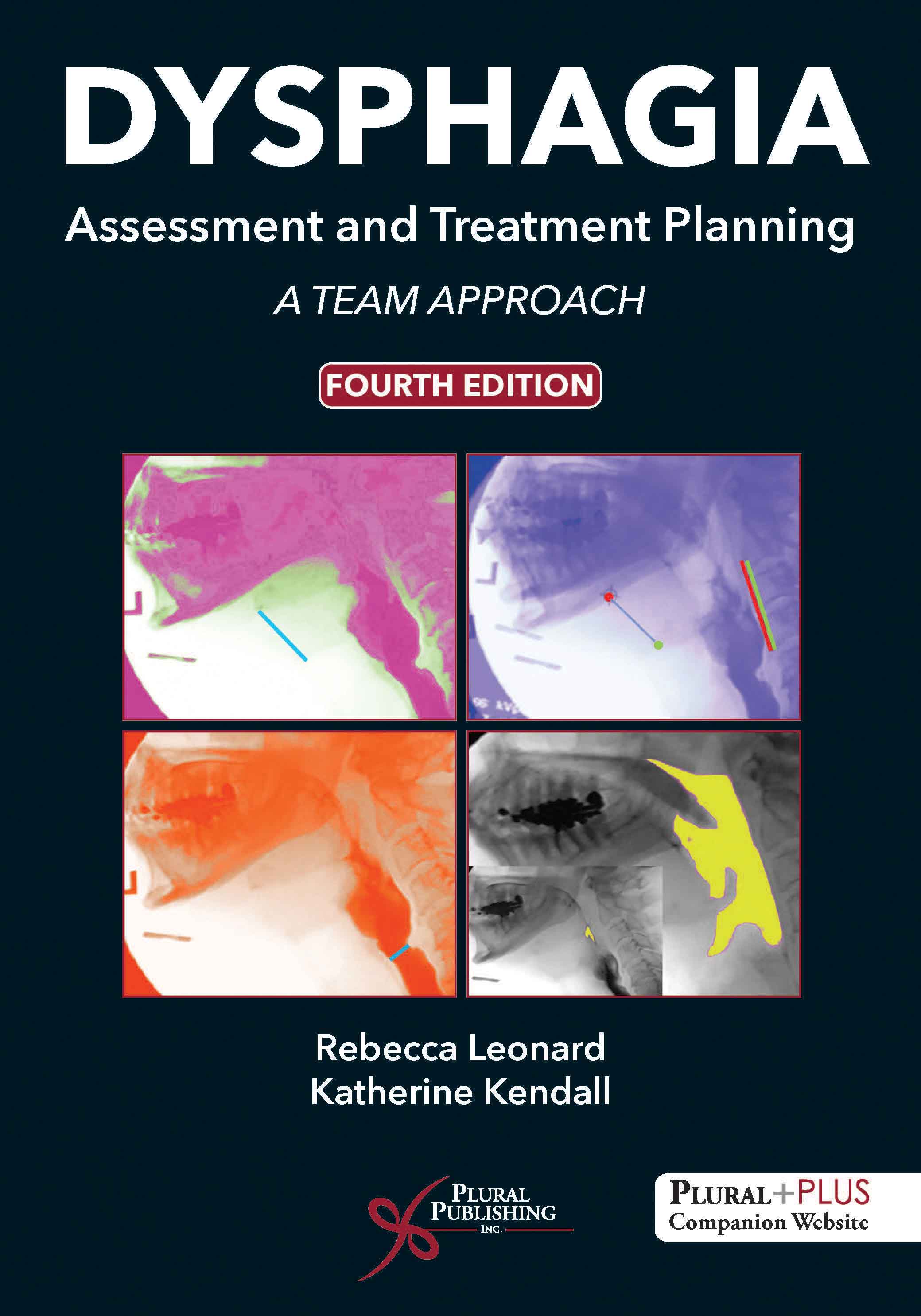
Dysphagia Assessment and Treatment Planning: A Team Approach.
Fourth Edition
Rebecca Leonard, Katherine Kendall
Details: 388 pages, Full Color, Hardcover, 7" x 10"
ISBN13: 978-1-63550-009-7
© 2019 | Available
Dysphagia Assessment and Treatment Planning: A Team Approach, Fourth Edition is an ideal resource for dysphagia courses in speech-language pathology graduate programs. The unique value of this book is its multidisciplinary approach. Too often, speech-language pathologists function clinically with insufficient interaction with, or understanding of, the roles of other professionals involved with their patients. This text incorporates information pertinent to the roles, tools, and views of a multidisciplinary dysphagia team, including physicians, speech pathologists, nurse specialists, and dietitians, who work together on a daily basis.
In this fourth edition, the organization has changed, with chapters concerned with assessment techniques coming first, and material addressing special populations comprising the latter portion of the text. This reflects what is likely a more typical approach to dysphagia in graduate courses concerned with the topic and one that complements teaching of the subject matter.
New to the Fourth Edition
- The treatment chapter (Chapter 10) has been updated to reflect the current status of therapeutic approaches previously considered in treating dysphagic patients.
- Chapters dealing with nursing (Chapter 11) and nutrition (Chapter 12) have been updated to incorporate the latest recommendations in nursing care and dietary considerations for patients experiencing dysphagia.
- The pediatrics chapter (Chapter 13) has been expanded to address specific problems and needs not only of infants but also the entire spectrum of childhood.
- A chapter devoted to the esophagus (Chapter 14) addresses new information on the management of esophageal disorders, including the novel double-balloon dilation of the UES and a device for manually opening the upper esophagus.
- Chapters addressing special populations, including neurogenic disease (Chapter 15) and head and neck cancer (Chapter 16), incorporate the latest information regarding dysphagia and approaches to treatment pertinent to each group.
- A brand-new addition to the book is Chapter 18, which addresses dysphagia associated with alterations to the spine as a consequence of either disease or surgery.
- A major new inclusion in the current edition are materials utilizing a new software program, called "Swallowtail," that permits the all-in-one measurement, display and storage of timing, displacement, and other measures from fluoroscopic studies.
The textbook now comes with access to a PluralPlus companion website that includes videos of patient studies that were selected to represent impairments typically observed in clinical practice (inpatient and outpatient). Other media clips illustrate each instrumental assessment technique introduced in the book (e.g., endoscopic, transnasal esophagoscopy, high-resolution manometry), performed on a variety of dysphagic patients. Additional resources for instructors include lecture slides for each chapter and an image bank.
Also available is a separate companion workbook, Dysphagia Assessment and Treatment Planning Workbook, Fourth Edition, that includes practical exercises accompanying each chapter. The exercises are designed to clarify and expand on information presented in the text and should be of interest not only to students but to practicing clinicians hoping to add new skills to their repertoires. The workbook has been thoroughly updated to reflect the new organization and content of the textbook.
Introduction
Multimedia List
Acknowledgments
Contributors
Chapter 1. Anatomy and Physiology of Deglutition
Katherine A. Kendall
Chapter 2. Head and Neck Physical Exam
Katherine A. Kendall
Chapter 3. Clinical Swallow Evaluation
Susan J. Goodrich and Alice I. Walker
Chapter 4. Endoscopy in Assessing and Treating Dysphagia
Rebecca Leonard
Chapter 5. Radiographic Evaluation of the Pharynx and Esophagus
Jacqui Allen
Chapter 6. Dynamic Fluoroscopic Swallow Study: Swallow Evaluation with Videofluoroscopy
Susan McKenzie and Rebecca Leonard
Chapter 7. DSS: A Systematic Approach to Analysis and Interpretation
Susan McKenzie and Rebecca Leonard
Chapter 8. Dynamic Swallow Study: Objective Measures and Normative Data in Adults
Rebecca Leonard
Chapter 9. Other Technologies in Dysphagia Assessment
Maggie A. Kuhn
Chapter 10. The Treatment Plan
Rebecca Leonard and Katherine A. Kendall
Chapter 11. Nursing Evaluation and Care of the Dysphagic Patient
Ann E. F. Sievers
Chapter 12. Nutritional Concerns and Assessment in Dysphagia
Beverly Lorens and Katherine A. Kendall
Chapter 13. Pediatric Clinical Feeding Assessment
Anna Miles
Chapter 14. Esophageal Phase Dysphagia
Peter C. Belafsky and Catherine J. Rees Lintzenich
Chapter 15. Neurogenic Dysphagia
Jacqui Allen
Chapter 16. Dysphagia in Head and Neck Cancer Patients
Katherine A. Kendall
Chapter 17. Laryngopharyngeal Reflux
Catherine J. Rees Lintzenich and Peter C. Belafsky
Chapter 18. Spinal Abnormalities in Dysphagia
Derrick R. Randall
Index
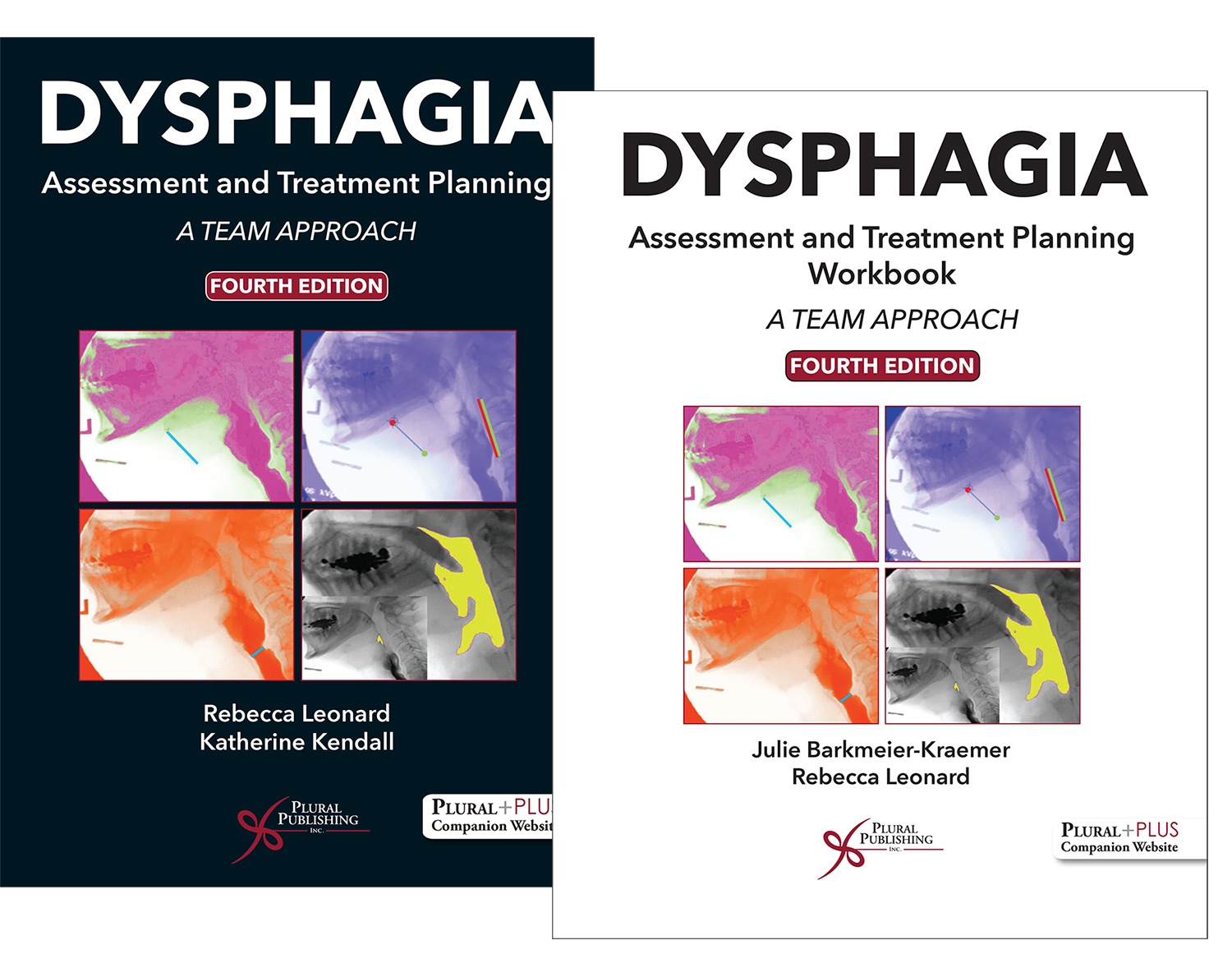
Dysphagia Assessment and Treatment Planning: A Team Approach Bundle (Textbook and Workbook).
Overview
Dysphagia Assessment and Treatment Planning: A Team Approach, Fourth Edition is an ideal resource for dysphagia courses in speech-language pathology graduate programs. The unique value of this book is its multidisciplinary approach. Too often, speech-language pathologists function clinically with insufficient interaction with, or understanding of, the roles of other professionals involved with their patients. This text incorporates information pertinent to the roles, tools, and views of a multidisciplinary dysphagia team, including physicians, speech pathologists, nurse specialists, and dietitians, who work together on a daily basis.
In this fourth edition, the organization has changed, with chapters concerned with assessment techniques coming first, and material addressing special populations comprising the latter portion of the text. This reflects what is likely a more typical approach to dysphagia in graduate courses concerned with the topic and one that complements teaching of the subject matter.
Updates to the fourth edition include:
- The treatment chapter (Chapter 10) has been updated to reflect the current status of therapeutic approaches previously considered in treating dysphagic patients.
- Chapters dealing with nursing (Chapter 11) and nutrition (Chapter 12) have been updated to incorporate the latest recommendations in nursing care and dietary considerations for patients experiencing dysphagia.
- The pediatrics chapter (Chapter 13) has been expanded to address specific problems and needs not only of infants but also the entire spectrum of childhood.
- A chapter devoted to the esophagus (Chapter 14) addresses new information on the management of esophageal disorders, including the novel double-balloon dilation of the UES and a device for manually opening the upper esophagus.
- Chapters addressing special populations, including neurogenic disease (Chapter 15) and head and neck cancer (Chapter 16), incorporate the latest information regarding dysphagia and approaches to treatment pertinent to each group.
- A brand-new addition to the book is Chapter 18, which addresses dysphagia associated with alterations to the spine as a consequence of either disease or surgery.
- A major new inclusion in the current edition are materials utilizing a new software program, called "Swallowtail," that permits the all-in-one measurement, display and storage of timing, displacement, and other measures from fluoroscopic studies.
The textbook now comes with access to a PluralPlus companion website that includes videos of patient studies that were selected to represent impairments typically observed in clinical practice (inpatient and outpatient). Other media clips illustrate each instrumental assessment technique introduced in the book (e.g., endoscopic, transnasal esophagoscopy, high-resolution manometry), performed on a variety of dysphagic patients. Additional resources for instructors include lecture slides for each chapter and an image bank.
Also available is a separate companion workbook, Dysphagia Assessment and Treatment Planning Workbook, Fourth Edition, that includes practical exercises accompanying each chapter. The exercises are designed to clarify and expand on information presented in the text and should be of interest not only to students but to practicing clinicians hoping to add new skills to their repertoires. The workbook has been thoroughly updated to reflect the new organization and content of the textbook.
Purchasers of this book receive complimentary access to supplementary materials hosted on a PluralPlus companion website.
To access the materials, log in to the website using the URL located inside the front cover of your copy of Dysphagia Assessment and Treatment Planning: A Team Approach, Fourth Edition.
STUDENTS:
To access the student materials, you must register on the companion website and log in using the access code located inside the front cover of your textbook.
INSTRUCTORS:
To access the instructor materials, you must contact Plural Publishing, Inc. to be verified as an instructor and receive your access code.
Email: instructormaterials@pluralpublishing.com
Tel: 866-758-7251 (toll free) or 858-492-1555
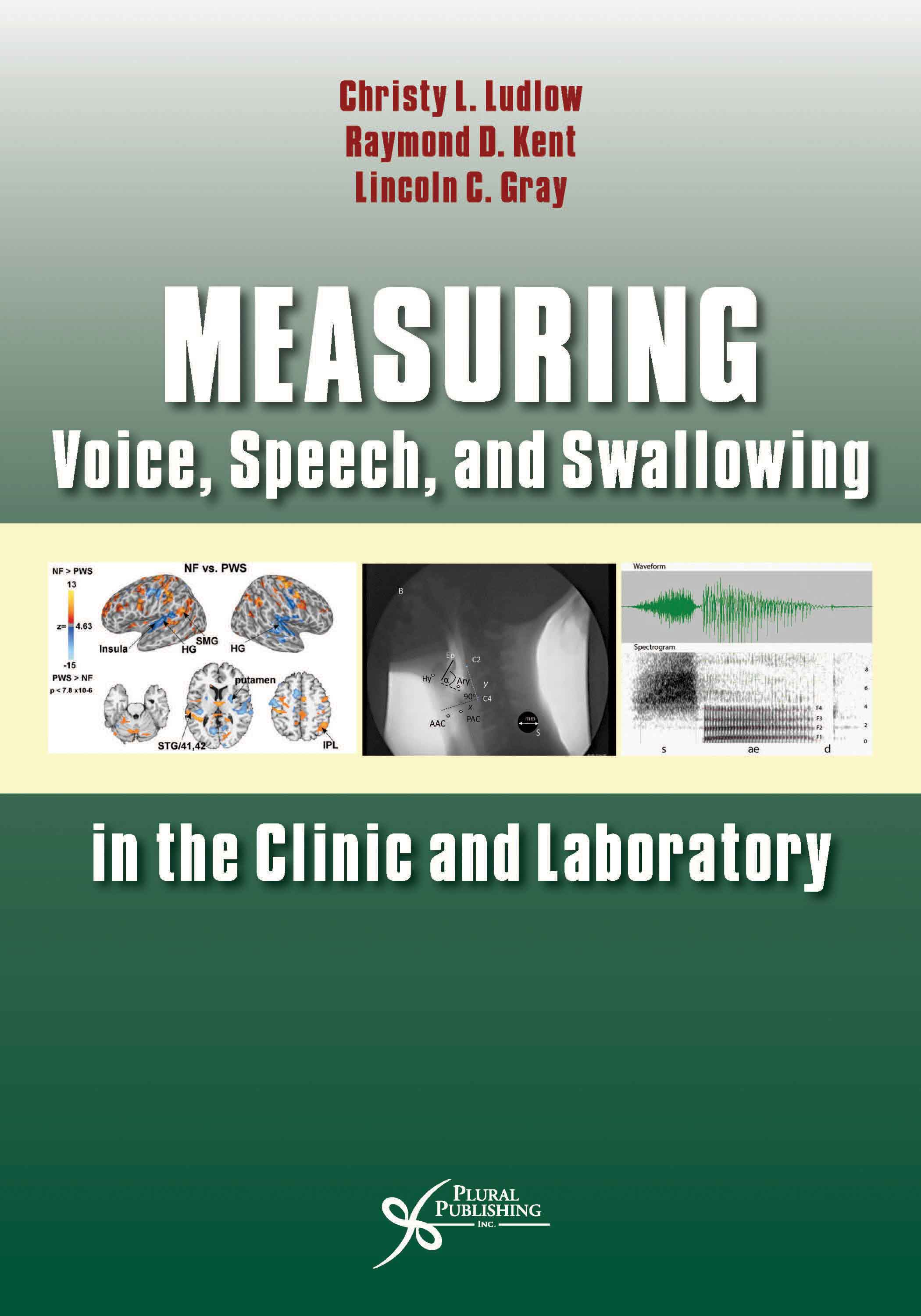
Measuring Voice, Speech, and Swallowing in the Clinic and Laboratory
First Edition
Christy L. Ludlow, Raymond D. Kent, Lincoln C. Gray
Details: 566 pages, Full Color, Spiral Bound, 7" x 10"
ISBN13: 978-1-59756-464-9
© 2018 | Available
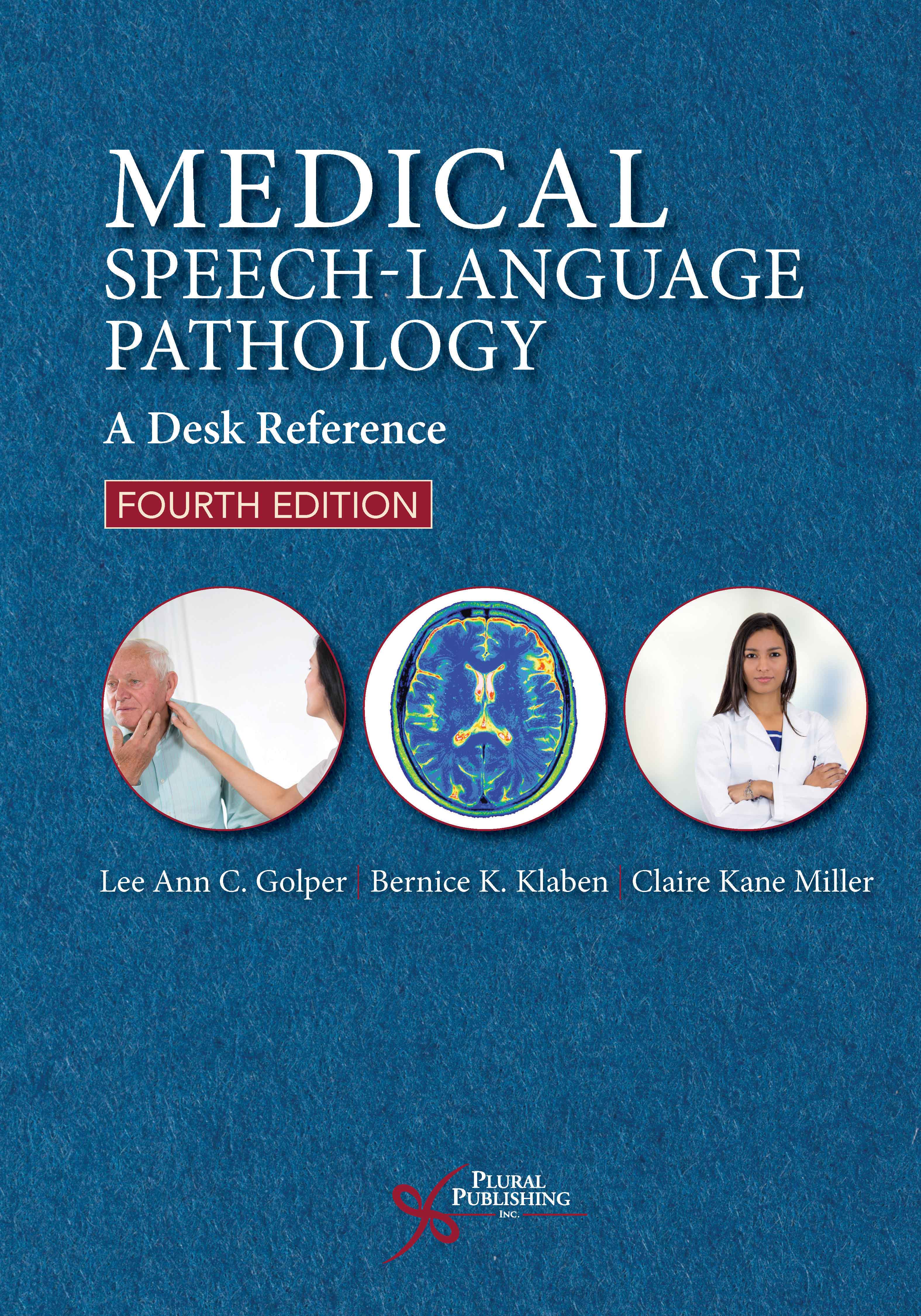
Medical Speech-Language Pathology: A Desk Reference
Fourth Edition
Lee Ann C. Golper, Bernice K. Klaben, Claire Kane Miller
Details: 663 pages, B&W, Spiral Bound, 7" x 10"
ISBN13: 978-1-94488-376-8
© 2019 | Available
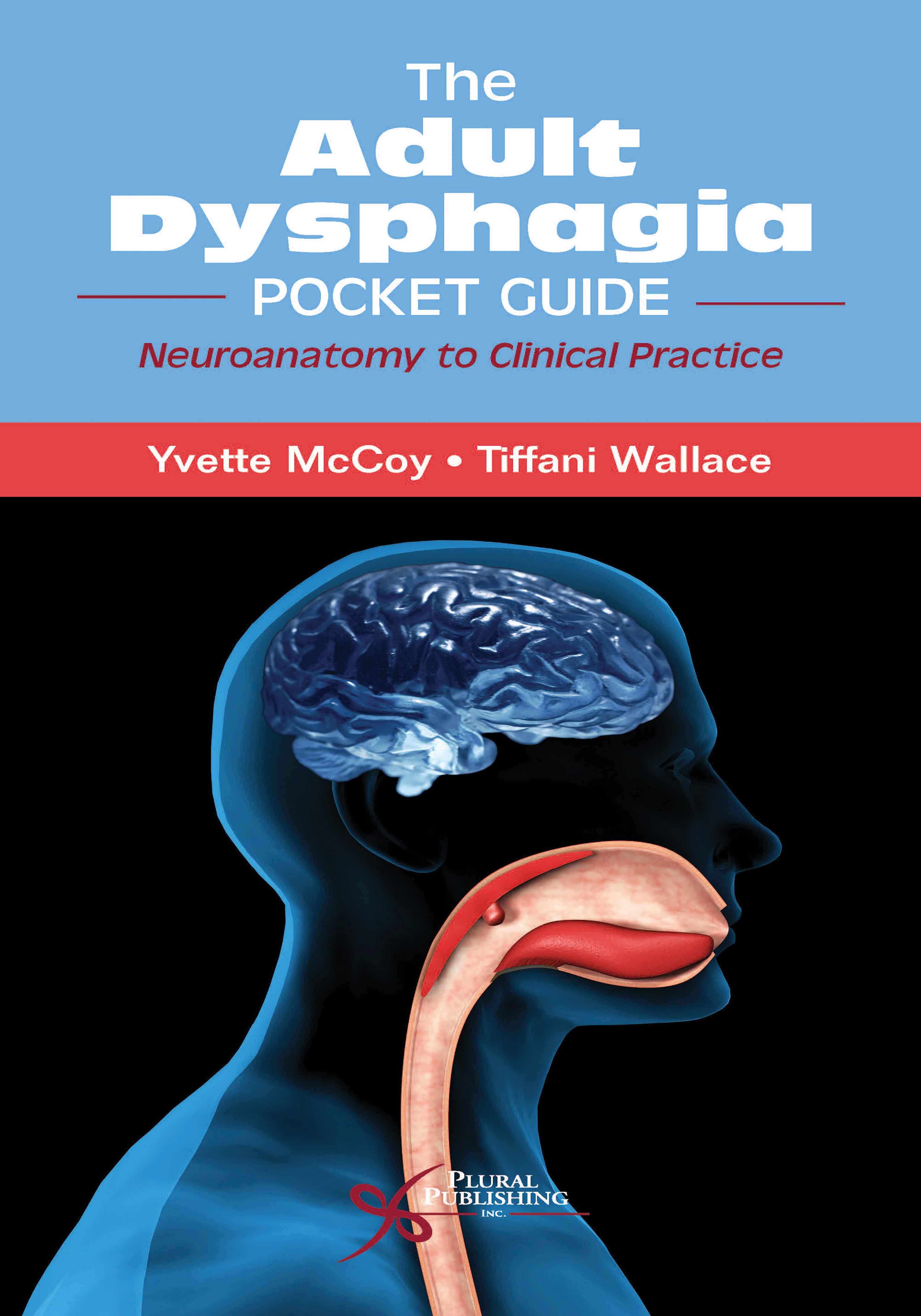
The Adult Dysphagia Pocket Guide: Neuroanatomy to Clinical Practice.
First Edition
Yvette M. McCoy, Tiffani Wallace
Details: 222 pages, B&W, Softcover, 4.5" x 8"
ISBN13: 978-1-63550-091-2
© 2019 | Available
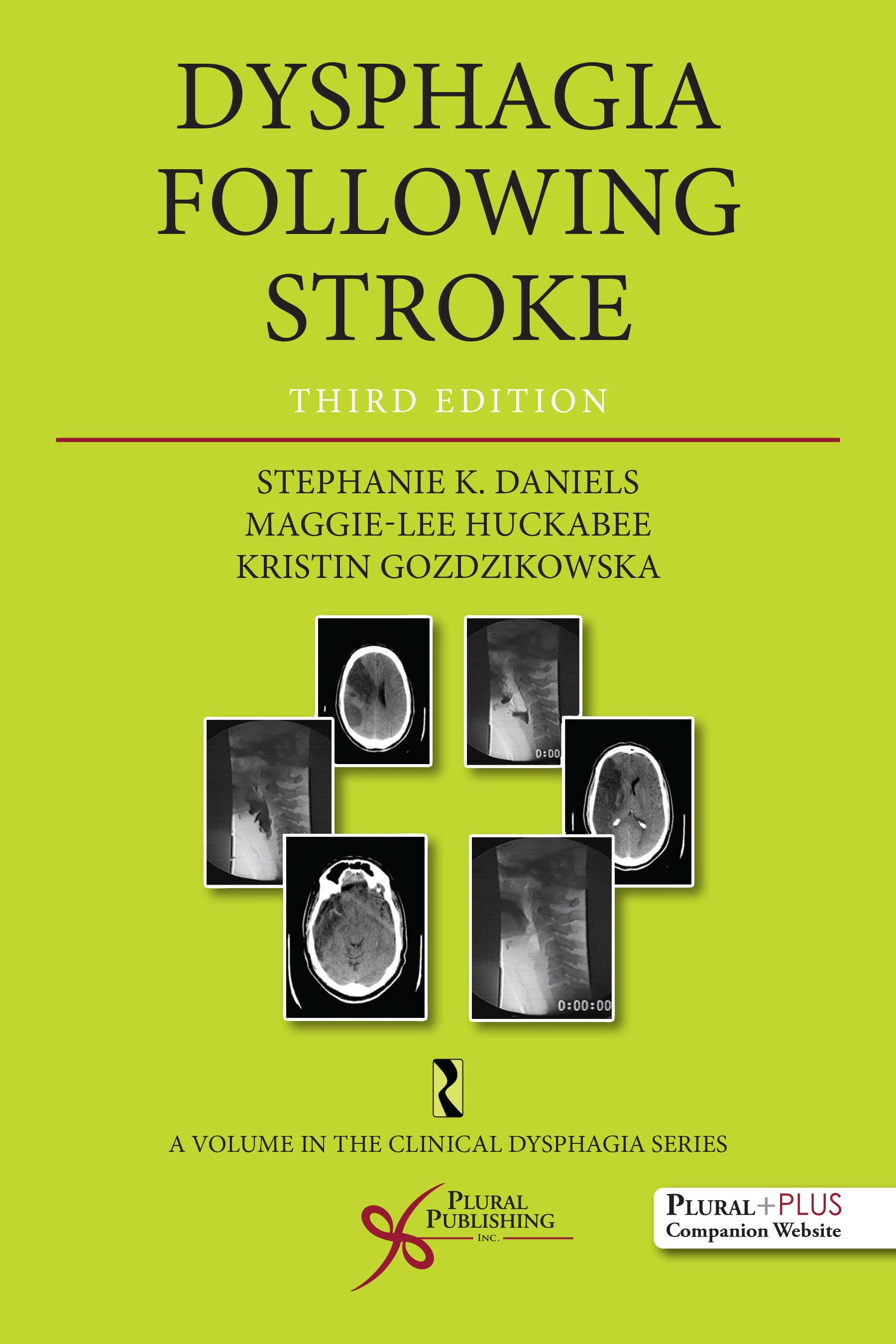
Dysphagia Following Stroke
Third Edition
Stephanie K. Daniels, Maggie-Lee Huckabee, Kristin Gozdzikowska
Details: 500 pages, B&W, Softcover, 6" x 9"
ISBN13: 978-1-63550-030-1
© 2019 | Available
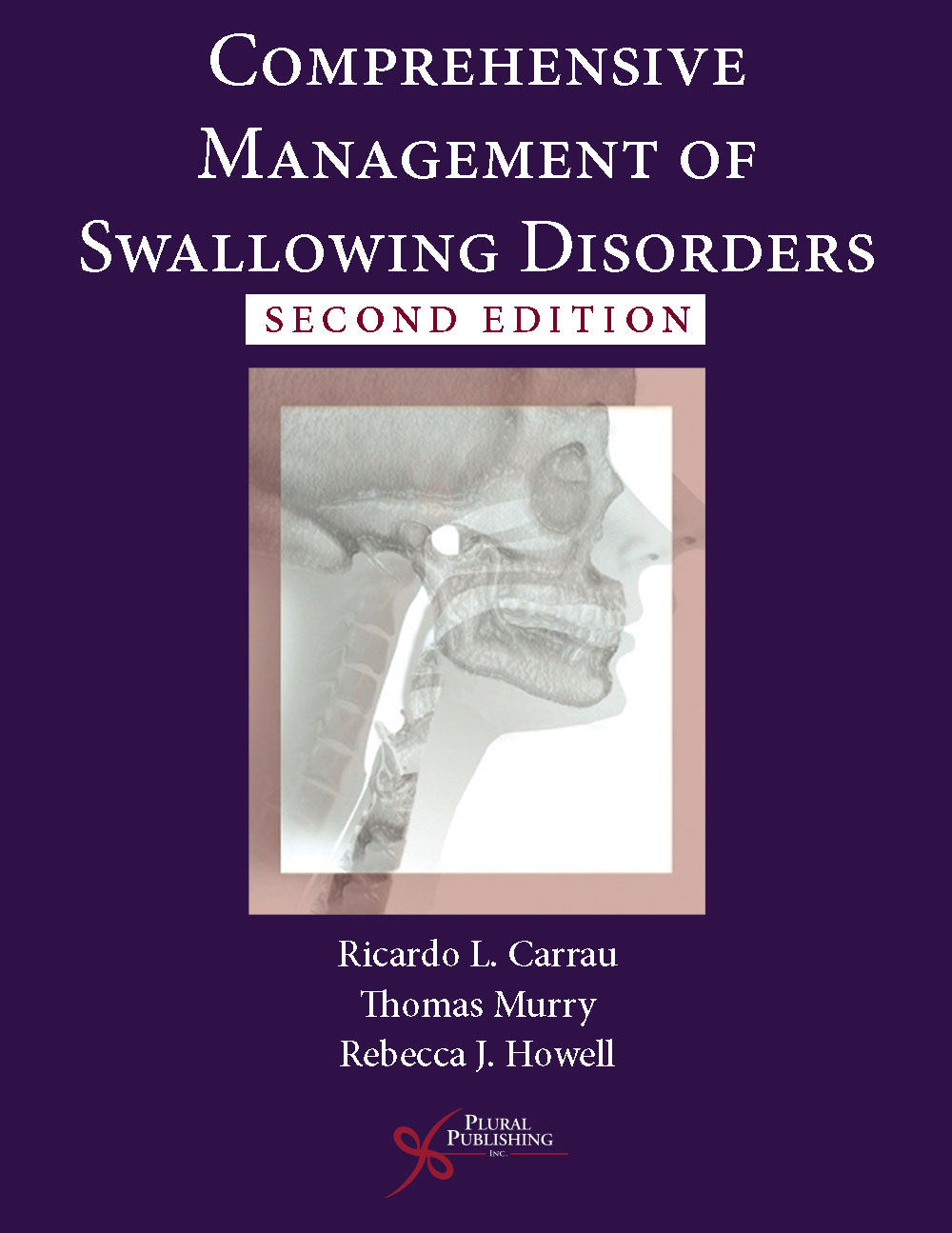
Comprehensive Management of Swallowing Disorders
Second Edition
Ricardo L. Carrau, Thomas Murry, Rebecca J. Howell
Details: 576 pages, B&W, Softcover, 8.5" x 11"
ISBN13: 978-1-59756-730-5
© 2017 | Available

Management of Swallowing and Feeding Disorders in Schools
First Edition
Emily M. Homer
Details: 318 pages, B&W, Softcover, 6" x 9"
ISBN13: 978-1-59756-515-8
© 2016 | Available
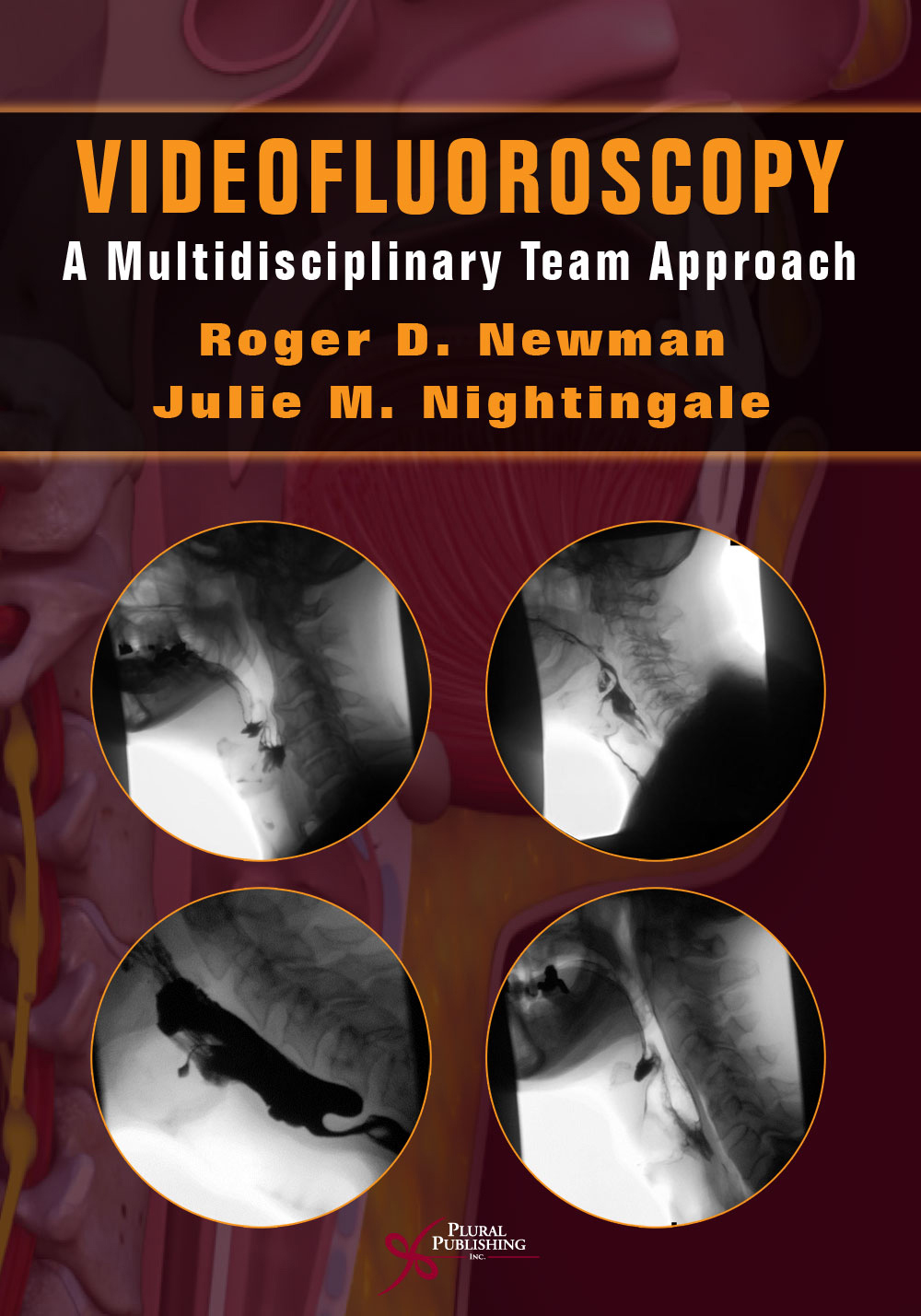
Videofluoroscopy: A Multidisciplinary Team Approach
First Edition
Roger D. Newman, Julie Nightingale
Details: 344 pages, B&W With Color Insert, Softcover, 7" x 10"
ISBN13: 978-1-59756-439-7
© 2013 | Available
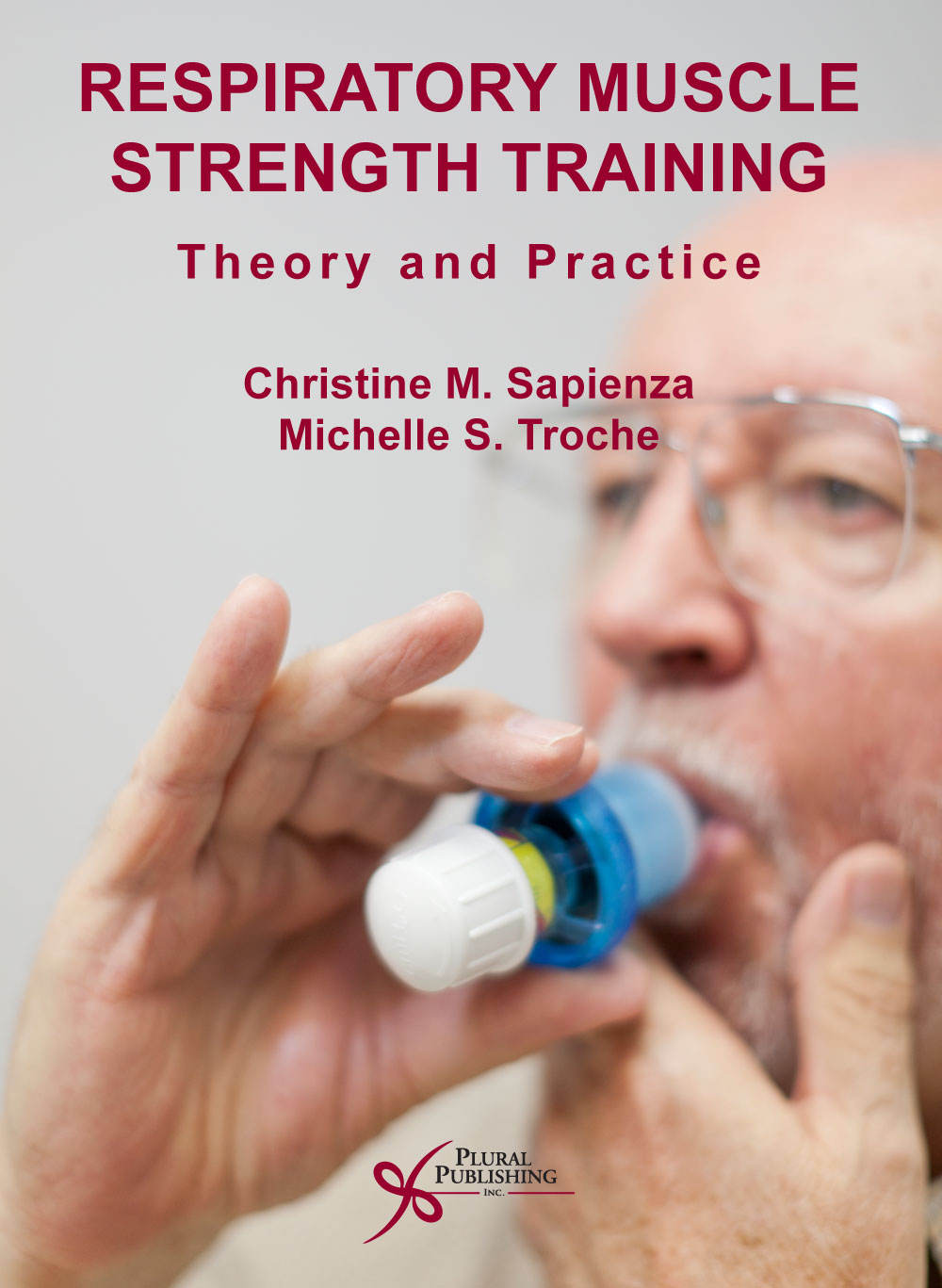
Respiratory Muscle Strength Training: Theory and Practice
First Edition
Christine Sapienza, Michelle S. Troche
Details: 87 pages, B&W, eBook
ISBN13: 978-1-59756-626-1
© 2012 | Available

Dysphagia in Rare Conditions: An Encyclopedia
First Edition
Harrison Jones, John C. Rosenbek
Details: 736 pages, Full Color, eBook
ISBN13: 978-1-59756-747-3
© 2010 | Available
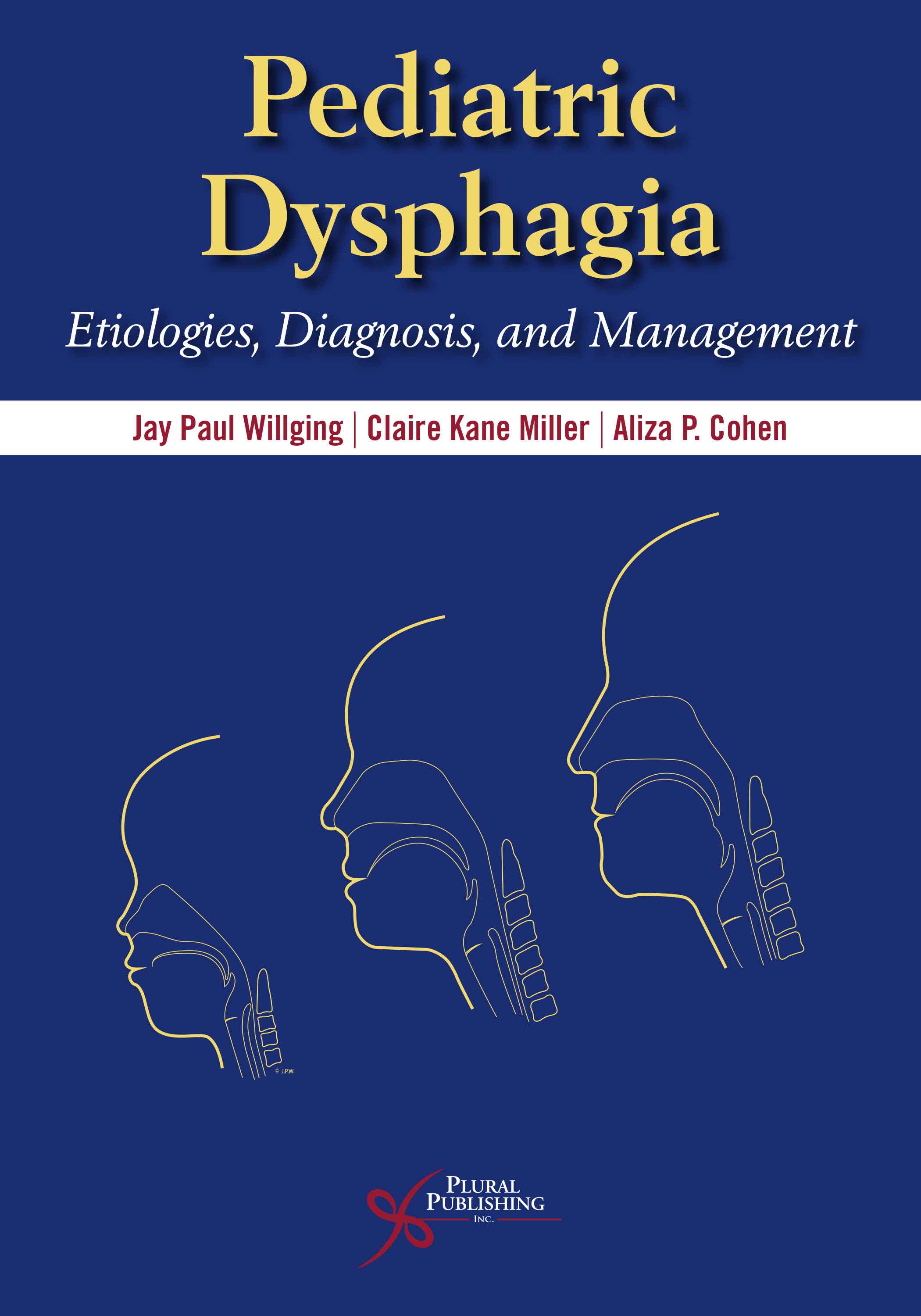
Pediatric Dysphagia: Etiologies, Diagnosis, and Management
First Edition
Jay Paul Willging, Claire Kane Miller, Aliza P. Cohen
Details: 720 pages, Full Color, Hardcover, 7" x 10"
ISBN13: 978-1-59756-864-7
© 2020 | Available

Rare Disorders that Cause Dysphagia: A Guide for Speech-Language Pathologists
First Edition
Violet O. Cox
Details: 217 pages, B&W, Softcover, 6" x 9"
ISBN13: 978-1-63550-142-1
© 2020 | Available

Interprofessional Education Toolkit: Practical Strategies for Program Design, Implementation, and Assessment
First Edition
Nassrine Noureddine, Darla K. Hagge, William Ofstad
Details: 269 pages, B&W, Softcover, 8.5" x 11"
ISBN13: 978-1-63550-217-6
© 2022 | Available
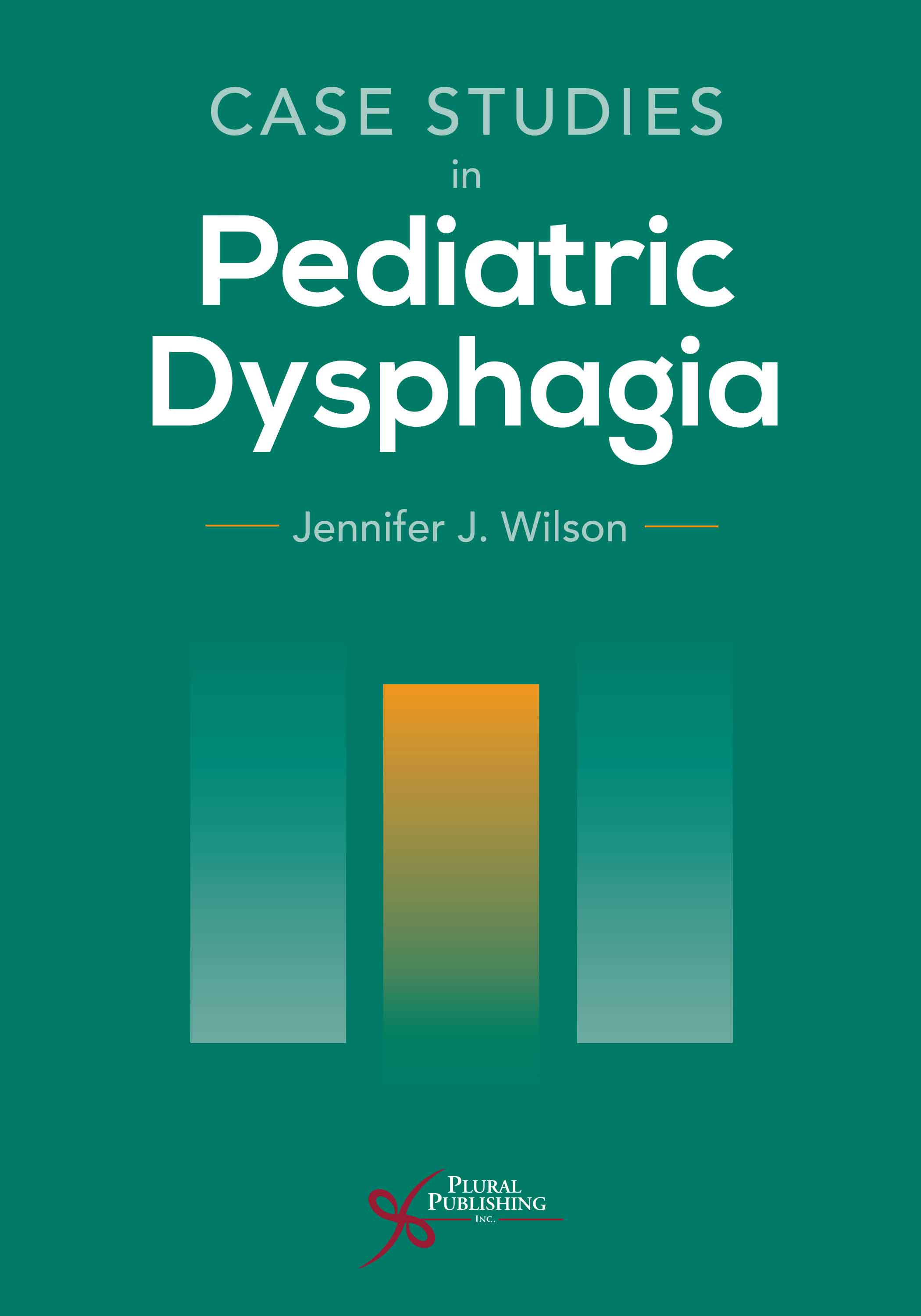
Case Studies in Pediatric Dysphagia
First Edition
Jennifer J. Wilson
Details: 208 pages, B&W, Softcover, 7" x 10"
ISBN13: 978-1-63550-397-5
© 2023 | Available
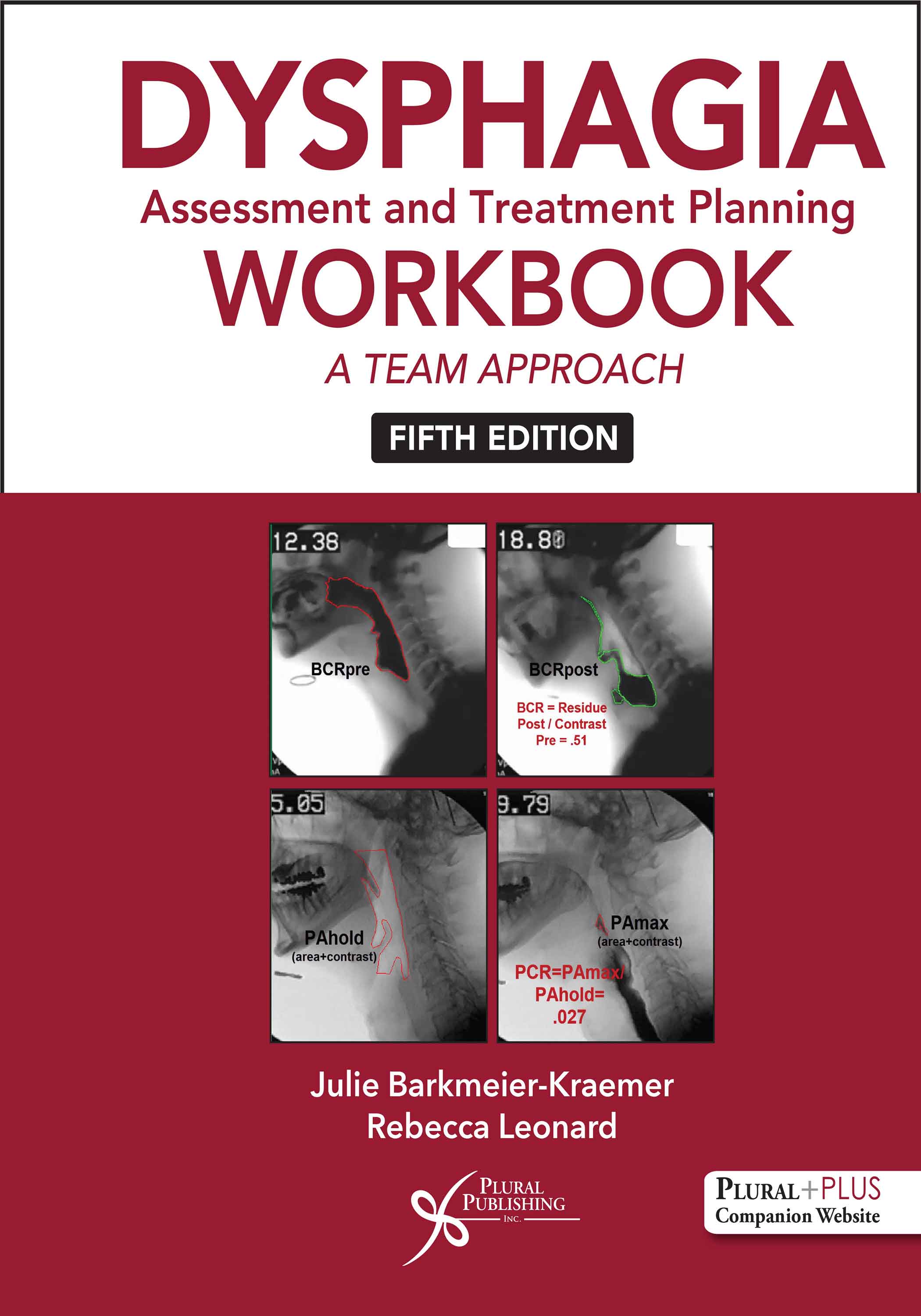
Dysphagia Assessment and Treatment Planning Workbook: A Team Approach
Fifth Edition
Julie Barkmeier-Kraemer, Rebecca Leonard
Details: 275 pages, B&W, Spiral, 8.5" x 11"
ISBN13: 978-1-63550-496-5
© 2025 | Available

